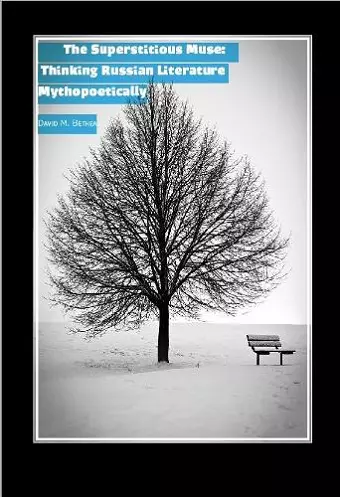The Superstitious Muse
Thinking Russian Literature Mythopoetically
Format:Hardback
Publisher:Academic Studies Press
Published:30th Nov '09
Currently unavailable, and unfortunately no date known when it will be back

For several decades David Bethea has written authoritatively on the “mythopoetic thinking” that lies at the heart of classical Russian literature, especially Russian poetry. His theoretically informed essays and books have made a point of turning back to issues of intentionality and biography at a time when authorial agency seems under threat of “erasure” and the question of how writers, and poets in particular, live their lives through their art is increasingly moot. The lichnost’ (personhood, psychic totality) of the given writer is all-important, argues Bethea, as it is that which combines the specifically biographical and the capaciously mythical in verbal units that speak simultaneously to different planes of being. Pushkin’s Evgeny can be one incarnation of the poet himself and an Everyman rising up to challenge Peter’s new world order; Brodsky can be, all at once, Dante and Mandelstam and himself, the exile paying an Orphic visit to Florence (and, by ghostly association, Leningrad).This sort of metempsychosis, where the stories that constitute the Ur-texts of Russian literature are constantly reworked in the biographical myths shaping individual writers’ lives, is Bethea’s primary focus. This collection contains a liberal sampling of Bethea’s most memorable previously published essays along with new studies prepared for this occasion.
Bethea (Slavic languages and literatures, U. of Wisconsin-Madison and Russian studies, Oxford U.) explores how the poetic impulse creates and is created by story, looking at Russian literature primarily as transmission and modification of large cultural patterns, though also recognizing the individuality of the authors. A central section on Pushkin as poet and thinker is preceded by a section on general themes and followed by one surveying how other Russian authors viewed their own work and that of others. Specific topics include the apocalyptic plot in Russian literature, how to read Pushkin's dialogue with Shakespeare in The Stone Guest, and Nabokov's style, and Joseph Brodsky's "To My Daughter." The ultra-contemporary typeface is for readers with a short attention span. (Annotation ©2010 Book News Inc. Portland, OR)|“Few American Slavists have been as prolific as David M. Bethea; hence this ample collection represents only a small sampling of his work. Nonetheless, it gives a good sense of his scholarly preoccupations over the past three decades. The book is wide-ranging in both its theoretical concerns and its choice of primary texts. . . . Bethea’s approach opens up obscure passages in unprecedented ways, often with admirable clarity.” –Michael Wachtel, Princeton University, in the Slavic Review
ISBN: 9781934843178
Dimensions: unknown
Weight: 766g
432 pages